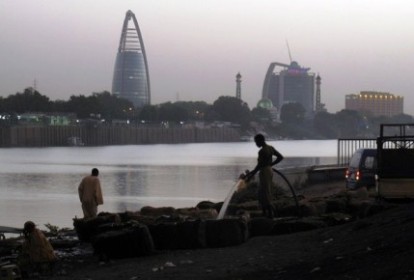Sudan, Egypt hold talks on Nile resources in Khartoum
February 16, 2014 (KHARTOUM) – The Sudanese-Egyptian Permanent Joint Technical Commission for Nile Waters (PJTC) has convened its 54th regular meeting in Khartoum on Sunday.

The Sudanese minister of water resources and electricity, Mutaz Musa, welcomed water experts from both sides, expressing hope that PJTC holds fruitful discussions which results in achieving optimal utilization of the river Nile.
The Egyptian side in the meetings is headed by the director of Nile water sector, Ahmed Bahaa al-Deen, while the Sudanese side is headed by, Saif al-Deen Ahmed.
The two sides have entered into closed meetings to discuss all issues relating to technical cooperation besides discussing a list of joint projects submitted by Egypt to increase Nile water revenues and to provide the PJTC with the water balances of dams and actions related to the production of electric power.
Meetings would also discuss ways for developing and properly managing water resources besides looking into a new plan to expand PJTC’s mandate and develop its work system in order to meet regional and international challenges to achieve water security for both countries.
The two sides will address the future role of the PJTC besides reviewing important researches and studies on optimal exploitation of Nile waters.
The 54th PJTC meeting has been delayed several times over the last two years due to political changes and events as well as last year’s floods which hit most of Sudan’s states.
Last year, Sudan departed from Egypt in the latter’s campaign to stop building Ethiopia’s Renaissance dam along the Blue Nile.
Egypt fears that the $4.6 billion hydropower plant, which Ethiopia is building on the Blue Nile, will diminish its share of the river’s water, arguing its historic water rights must be maintained.
Ethiopia is the source of around 85% of the Nile’s water, mainly through rainfall in its highlands. Over 90% of Egyptians rely on water from the Nile’s flows.
In June, a panel of international experts who were tasked by the three countries to study the impacts of the Ethiopian dam on lower riparian countries, including Sudan and Egypt, found that the dam project will not cause significant harm to either country.
Cairo remains unconvinced and has sought further studies and consultation with Khartoum and Addis Ababa.
Sudan, however, has accepted the final findings and offered to send experts and technicians to help in the dam’s construction, a move welcomed by Ethiopia.
(ST)
